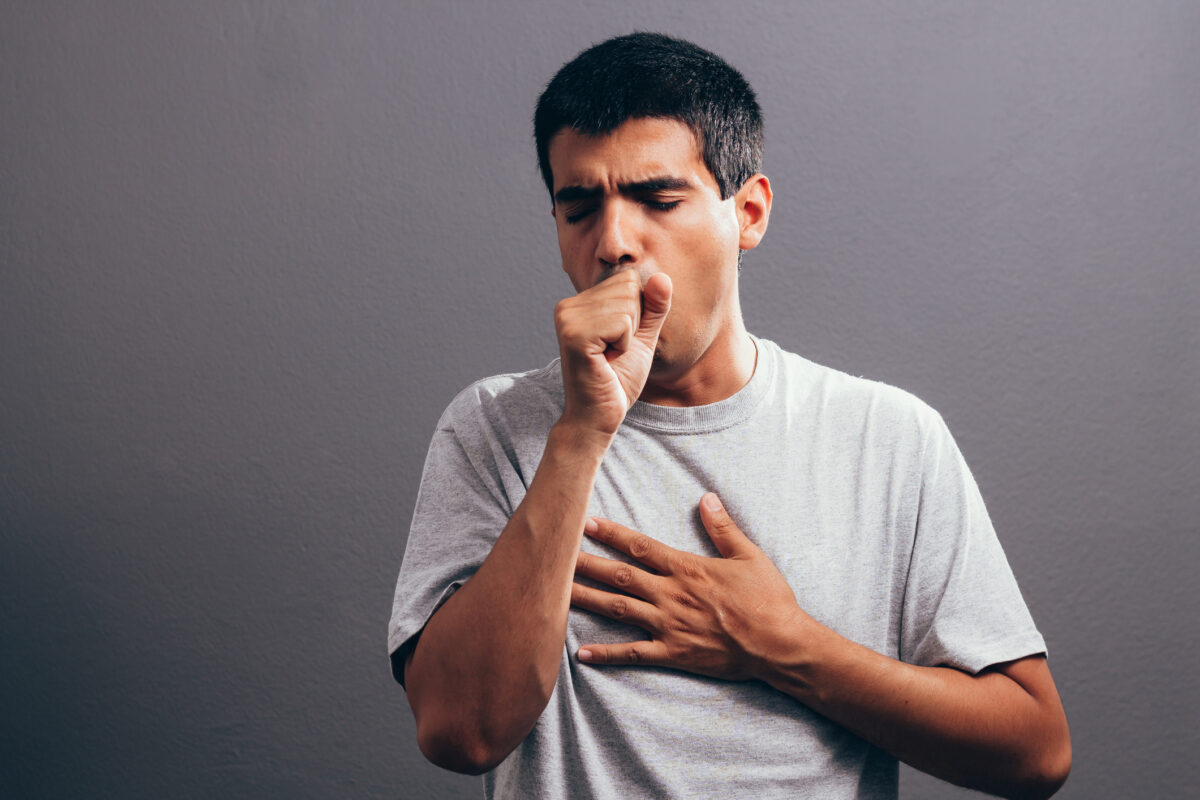Bengaluru is experiencing an unexpected surge in pneumonia cases during the summer months, a time when respiratory infections are typically less common. Know what is leading to this increase in cases and tips to prevent.
Published Mar 23, 2025 | 7:00 AM ⚊ Updated Mar 23, 2025 | 7:00 AM

Several people have been reporting a lingering cough and infection that haven't gone away in three weeks. (Wikimedia Commons)
Synopsis: Bengaluru is experiencing a rise in pneumonia cases this summer, with a 10-15% increase compared to last year. Contributing factors include unseasonal weather, pollution, antibiotic resistance, and delayed medical care. Healthcare professionals urge prompt treatment, especially for vulnerable groups. Prevention includes hydration, vaccinations, good hygiene, avoiding self-medication, and staying away from crowded areas.
Bengaluru is witnessing a concerning rise in pneumonia cases this summer, with both children and adults affected. Healthcare professionals attribute this surge to factors such as antibiotic resistance, environmental changes, and delays in seeking medical care.
Anecdotal evidence from various hospitals and private clinics across Bengaluru said that the pneumonia cases have increased by 10 to 15 percent when compared to last year. In children and the elderly the cases, which earlier used to be limited to one or two per week has apparently increased to 15 to 20 cases per week.
Dr Padma Sundaram, Consultant Pulmonologist and Sleep specialist at Fortis Hospital on Cunningham road told South First, “Pneumonia cases have increased, and while it was earlier prevalent during winter, it is now continuing into summer,”
Typically associated with colder months, pneumonia’s prevalence during summer has raised concerns.
Speaking to South First, Dr Ravindra Mehta, renowned pulmonologist, Founder Director of ‘VAAYU Chest and Sleep Center’ in Bengaluru and Head of Apollo Bangalore Integrated Pulmonology Services says, “There are more pneumonia cases than usual coming in here and it is unusual as the warm season comes, these cases tends to go down, but this is going on a little longer. Mostly, the elderly, the immunocompromised are coming in with pneumonia but in some cases, even the young have come with an infection.”
Meanwhile, Dr Parimala V Thirumalesh, Senior consultant-neonatology and paediatrics at Aster CMI Hospital said, “We have noticed a surge in pneumonia cases by 10-15 percent among children. The number of cases per week has almost gone up three to four times.”
She attributes the reasons to fluctuations in temperature and humidity which can create favorable conditions for respiratory viruses and bacteria to thrive. “Weakened immunity and overcrowding can also contribute to an increase in pneumonia cases. The current weather is also helping the viruses to grow and multiply, and spread the infection,” said Dr Parimala.
Doctors also attribute an increase in pollution levels in the city as a reason. With various construction projects being taken up across the city, the roads being dug up and debris thrown all over, the pollution levels have also gone up compromising respiratory health, making individuals more susceptible.
Pneumonia symptoms can vary depending on the cause—bacterial, viral, or fungal, the patient’s age, and overall health.
Some common symptoms are:
Dr Padma says, “It often starts as a viral infection, followed by a bacterial infection. Additionally, these cases are mainly seen in people with poorly controlled diabetes, and those on immunosuppressive therapy. It is also being seen in people with a history of travel or those who gathered in crowded areas.”
If someone has these symptoms, especially difficulty breathing, high fever, or confusion, they should seek medical attention immediately.
Healthcare providers have observed that many patients are seeking medical attention later in the course of their illness, leading to more severe cases.
Some of them are coming in with loose motions too and especially the elderly have been requiring hospital admissions. While most of them are settling, it is getting serious in a few cases which is unusual said Dr Ravi Mehta. Though some of the cases are being identified as H1N1 or influenza, few of them might be unknown viruses. However, there is an increase in pneumonia cases, added Dr Mehta.
“People delay coming into the hospital believing that it is a common cold and will go away. They wait and come late with pneumonia. So a little vigilance especially in those with diabetes, kidney issues, blood pressure, immunocompromised malignancy must be careful and visit doctors as soon as they see symptoms like cold, cough and fever,” explained Dr Mehta.
Pneumonia treatment typically involves antibiotics for bacterial infections, antiviral medications for viral causes, and supportive care such as rest, hydration, and oxygen therapy when necessary.
Dr Parimala stresses that the widespread use of antibiotics, both prescribed and unprescribed, for infections–some of which may be viral–has led to bacterial resistance against simpler and commonly used antibiotics
“This resistance results in increased severity of illness and unresponsiveness to first-line antibiotics. Consequently, a person undergoing treatment but not responding due to bacterial resistance can continue to spread the resistant bacteria,” said Dr Parimala.
Doctors emphasise that timely initiation of appropriate antibiotics is crucial in patients with pneumonia. Patients should avoid self-medicating and consult healthcare providers promptly.
Follow your doctor’s guidelines and complete the prescribed medication course.
(Edited by Sumavarsha)
